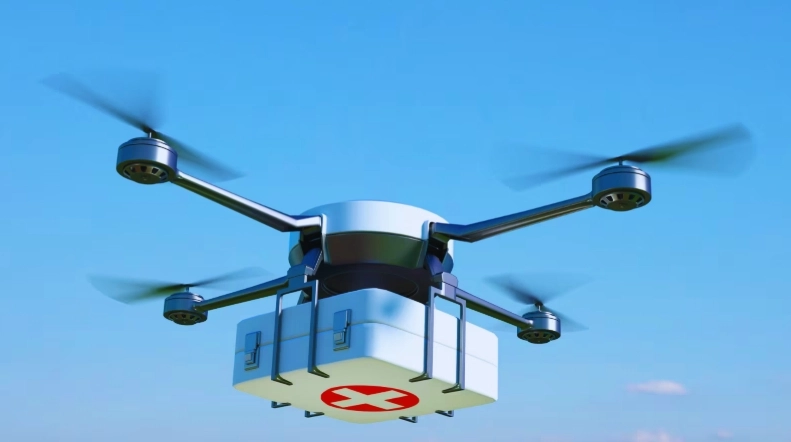
The Indian Council of Medical Research (ICMR) embarked on a pioneering study on Tuesday examining the aerial transport of sensitive ophthalmic materials, such as human corneas and amniotic membrane grafts.
This feasibility study, conducted in collaboration with AIIMS-Delhi and Dr Shroff’s Charity Eye Hospital and supported by the Ministry of Civil Aviation, assessed the use of drones to transport ophthalmic bio-materials from peripheral collection centres to tertiary hospitals for transplantation.
They have turned a visionary idea into reality by confirming the use of drones in the country’s medical sector. This step is intended to expedite corneal transplant procedures.
In this test, ICMR used a drone to transport corneal tissue from Dr Shroff Charity Eye Hospital (Sonipat Centre) to the National Cancer Institute (NCI), AIIMS-Jhajjar, and subsequently to AIIMS-Delhi. The journey, completed in approximately 40 minutes, was far quicker than the 2.5 hours typically required by road.
A medical official stated, “The drone provided optimal conditions to maintain the quality of the sample. Upon reaching AIIMS, the cornea was examined and found to be of high quality, leading to a successful transplant surgery." He further mentioned that drone transport is revolutionising the medical field by bridging the gap between donors and recipients. This innovation ensures that no useful tissue goes to waste, allowing more patients to regain their vision promptly.
Drones are proving to be transformative tools in healthcare logistics, enabling the swift delivery of critical medical supplies to remote areas. The prompt transport of donated corneas is essential, as delays can compromise tissue quality and reduce the chances of successful transplantation.
Drone-based transport offers a rapid, temperature-stable, and efficient alternative to traditional road networks, which can be slow and unpredictable.
ICMR’s i-DRONE Initiative
According to a PTI report, in recent years, the ICMR’s i-DRONE initiative has effectively utilised drones to deliver essential medical supplies in North East India, Himachal Pradesh, Karnataka, Telangana, and the National Capital Region over recent years.
ICMR Director General Dr Rajiv Bahl explained that the i-DRONE platform was initially developed during the CCOVID-19pandemic to deliver vaccines to remote areas. Since then, efforts have expanded to include the low-temperature delivery of blood products and essential medicines to high-altitude and sub-zero locations.
This cornea transport study enhances patient access, ensures timely transplants, and reduces pressure on overburdened tertiary hospitals, aligning with the Prime Minister’s vision of a self-reliant India driven by innovation. This latest test is another successful effort towards promoting technological innovation in healthcare.
AIIMS-Delhi Director Dr M Srinivas highlighted that corneal blindness affects millions in India, with timely donor tissue availability often being a limiting factor. “This drone-based transport model could be a transformative step towards ensuring equitable access to vision-restoring surgeries, especially in underserved areas. The success of this pilot project opens the door to deploying precision drone logistics for a wide range of critical medical applications," he stated.